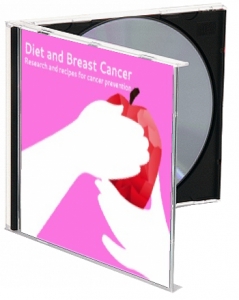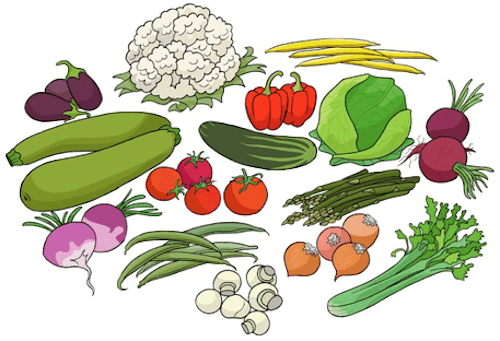April is Cancer Awareness Month
In honor of Cancer Awareness Month, we're pulling one of the most popular cancer articles out of our exclusive member library and posting it here just for you. If you'd like access to more resources like this, you can become a member today!As the second leading cause of death in the United States (heart disease is still number one), there’s a good chance that you or someone you know has battled cancer. The good news is that nearly half of all cancer deaths can be prevented with early detection and treatment. While some cancers are hereditary, the American Cancer Society (ACS) estimates that one-third of cancer deaths in the U.S. is due to dietary factors, while another third is caused by cigarette smoking.The American Institute for Cancer Research (AICR) and the World Cancer Research Fund set out to investigate the cancer/diet connection. After a review of more than 4,500 research studies and contributions from more than 120 experts and peer-reviewers, the 660-page report was published. Its most important message was, “Cancer is a preventable disease.”Consider these facts from the AICR:
- A healthful diet, plus exercise and maintaining a healthy weight, can cut your risk of cancer by 30 to 40 percent.
- A healthful diet plus not smoking could reduce your cancer risk by 60 to 70 percent.
- Simple changes, such as eating at least five servings of fruits and vegetables daily, could reduce your risk of cancer by more than 20 percent.
The media seems to be constantly reporting new studies showing that this or that element causes or prevents cancer. But the key to preventing disease is not avoiding any one food or taking any one supplement. Cancer prevention requires an anti-cancer lifestyle. That's why we've put together these 9 great steps for reducing your cancer risk...
9 Steps for Cancer Prevention
Choose Lower-Fat FoodsA high fat diet, especially one heavy in high fat meats, is linked to many types of cancer. Cured and smoked meats are usually high in fat and contain nitrites, which can cause stomach cancer. Low fat alternatives to meat, on the other hand, are promising cancer-fighters. Beans and legumes are rich in phytochemicals, and the isoflavones found in soy products may be beneficial too.Focus on FiberNumerous studies indicate that there is a link between high fiber intake and a decreased risk of colon cancer. A high fiber diet also has plenty of benefits. Of course, if you’re eating a plant-based diet that is rich in whole grains, fruits, vegetables, and beans, you’re going to be getting enough fiber anyway.Limit Alcoholic BeveragesAlcohol is associated with an increased risk of cancers of the mouth, esophagus, and larynx, and possibly breast cancer. Heavy drinking also can cause liver cancer. Both the ACS and the AICR recommend avoiding alcohol or limiting yourself to no more than one drink per day for women, and two per day for men.Remember Calcium and FolateResearchers think calcium and folate may each play a role in preventing colon cancer. Skim milk, low fat yogurt or cheese, and calcium-fortified orange juice are good ways to get the 1,000 mg of calcium you need daily, but you’ll also find what you need in beans and greens. Get the recommended 400 mcg/day of folate from leafy green vegetables, orange juice, beans, and fortified breads and cereals.Exercise!Regular physical activity is associated with a decreased risk of some types of cancer. Exercise helps you lose or maintain your weight, which is also important because obesity is related to cancer risk.Maintain a Healthy WeightThe AICR report recommends limiting weight gain during adult years to 11 pounds. The lifestyle changes described above will help you meet this goal.Eliminate Tobacco UseIf you smoke, seek help to quit. Eliminate the use of all tobacco products. After all, a third of cancer deaths are attributed to cigarette smoking.By Hollis Bass, MEd, RDLooking for more resources? Check out our member library and the Nutrition Education Store. We've also highlighted some of our favorite cancer resources below...





